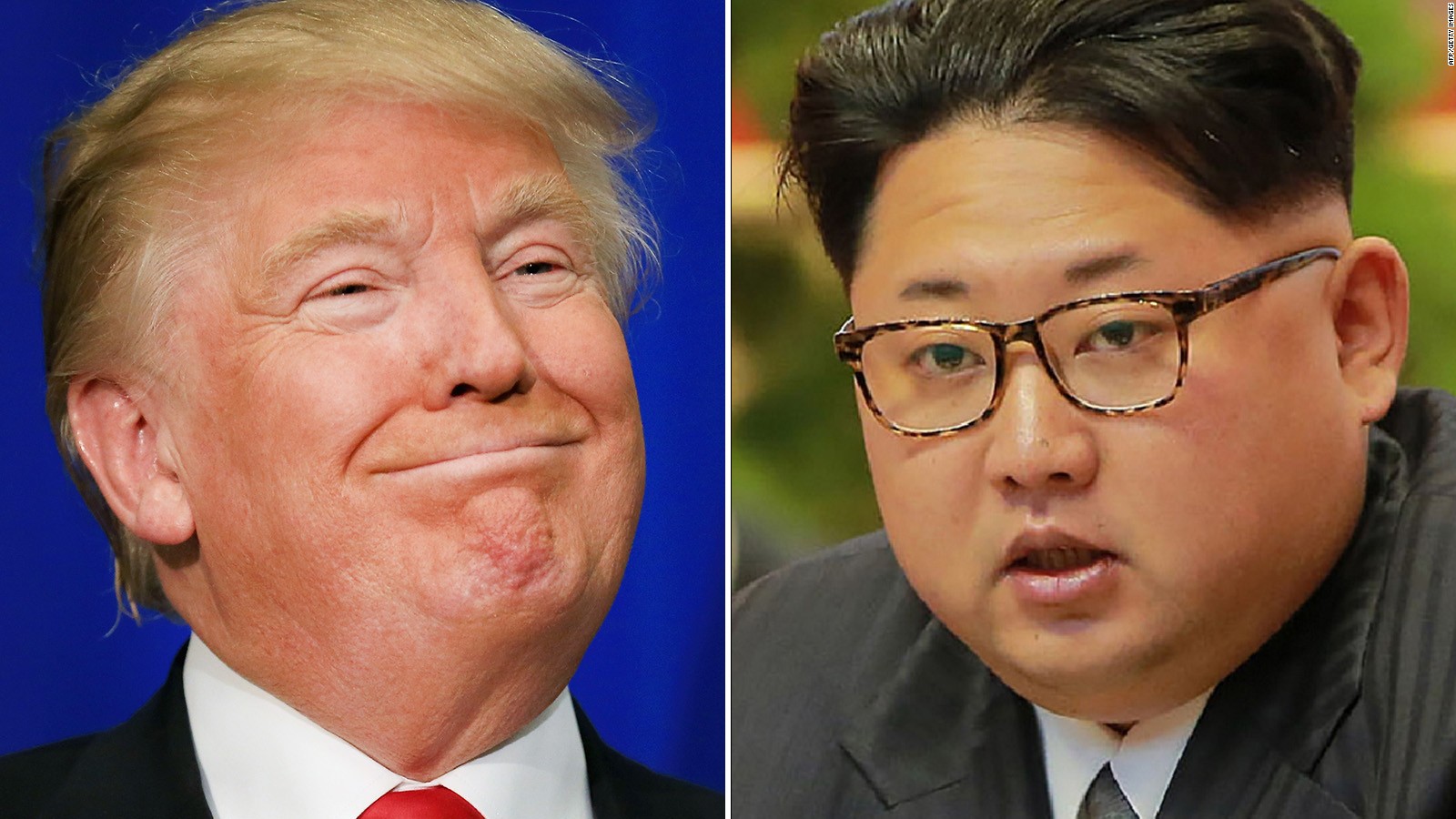
 Threats of "Fire and Fury" on the Korean Peninsula
Threats of "Fire and Fury" on the Korean PeninsulaNorth Korea is once again determining the contours of China-U.S. relations. In response to rising tensions and continued inter-continental ballistic missile (ICBM) testing on the Korean Peninsula, the United Nations Security Council approved a new set of tougher sanctions against the Democratic People's Republic of Korea (North Korea) in its resolution 2371. The adoption included the approval of China, who has typically opposed further economic sanctions on North Korea, and led many to consider it a "diplomatic triumph" for President Trump in aligning U.S. concerns with the rest of the world at a time of increasing political pressure to solve the crisis. This decision by China to join the consensus also appears to have bought them a temporary reprieve from further U.S. sanctions against Chinese banks.
This move is part of the effort put forward by China to prevent further missile testing by North Korea. However, New York Magazine speculated that this is as far as China will go as "they are willing to get just tough enough with Pyongyang to get to negotiations over a freeze (not a shutdown) of its nuclear program, and no tougher. The rest is on [the United States]." Further to this point, Reuters quoted Secretary of State Tillerson who commented that "the best signal that North Korea can give us that they are prepared to talk would be to stop these missile launches."
The success of the UN Security council resolution didn't prevent President Trump from further escalating threatening rhetoric, declaring that North Korea would be met with "fire and fury" and that the U.S. military is "locked and loaded." North Korea responded to these comments by stating it was considering plans to launch missile strikes at Guam, which in turn led to a hint at regime change from Secretary of Defense Mattis: "The DPRK should cease any consideration of actions that would lead to the end of its regime and the destruction of its people." These comments come at an inopportune time for China, as Tong Zhao, associate at the Carnegie Tsinghua Center for Global Policy, noted, "China has other regional crises as well, the border dispute with India, the South China Sea ... it's really bad timing for another real crisis to emerge in North Korea."
Could five-party talks be an solution to avoid military conflict? In a new commentary by Michael Green of CSIS, "There was only one such meeting —called as an audible by Ambassador Fu Ying when the North failed to show up at a session in 2003—to negotiate the joint statement for the first round of talks. I represented the United States and was struck at how effective a discussion we had. China has refused to convene or join a meeting of the five parties without North Korea ever since. Even Russian diplomats acknowledge the necessity of five party talks at this point, and Beijing would do well to reconsider its insistence on not isolating the North in regional diplomacy."
 Aluminum and China-U.S. Trade
Aluminum and China-U.S. TradeOn Tuesday, the United States Commerce Department issued a preliminary decision to levy an import tax on shipments of aluminum foil from China. This decision comes shortly after China's Shandong province ordered 3.21 million tons of smelting capacity to be cut as Beijing continues in its efforts to curb pollution. Amidst concerns over supply cuts, Aluminum prices skyrocketed to $2,000 per ton, the highest they have been in nearly three years.
As the Trump administration amplifies pressure on Chinese trade more broadly, some commentators believe that aluminum may be the canary in the cole mine for an all-out trade war between the world's largest economies. "(This) takes on more importance now that the Trump administration is ratcheting up pressure on Chinese trade practices," said Peterson Institute Senior Fellow Chad Brown. "This would happen under any administration. I think what's interesting and useful about it, though, is that it does tie into this bigger aluminum and overcapacity issue."
China has taken a steadier course in their messaging on trade. Beijing has long maintained that trade between the U.S. and China is mutually beneficial, and has routinely extended the olive branch to Washington in hopes of improving their trade relationship. Officials also assert that there are no links between North Korean security threats and China-U.S. trade.
Despite China's steady stance, analysts are concerned that DC's continued misinterpretation of trade issues -- and the significance of the U.S. trade deficit -- could be enough to catalyze trade war. Jim McCaughan, CEO of Principal Global Investors, said on Tuesday, "I don't believe that the U.S. trade deficit is as big a problem as many say." McCaughan says that Trump's tough talk on China appeals to the president's base, but he added that Trump would "blame someone else" in the event of a trade war and any negative consequences.
The impacts of trade tension are already being felt in China. Susan Joho, an economist at Julius Baer noted, "Chinese trade data for July disappointed market consensus expectations. Both yearly export and import growth moderated in comparison with the previous month, against expectations for remaining just as strong. Export growth to the U.S. almost halved amidst tensions over China's large trade surplus with the U.S." However, this is not the first time that analysts have feared a trade war under the Trump administration, and China's July 'slump' may not be as serious as some believe. Second-half trade growth is not unusual, and China is still likely to see its first positive growth in annual foreign trade since 2014.
Further Tuesday's preliminary ruling still requires a final decision from the International Trade Commission and the U.S. Commerce Department. It remains possible that the Trump administration could cave to pushback from foreign allies and domestic industries - similar to the delayed decision on steel restrictions following complaints that it would cripple domestic industries and strain global ties.
 South China Sea Code of Conduct Agreed Upon as ASEAN Marks 50 Years
South China Sea Code of Conduct Agreed Upon as ASEAN Marks 50 YearsThe South China Sea was a focus of the ASEAN meeting in Manila as regional foreign ministers adopted a joint communique at the 50th anniversary of the formation of the regional bloc. While China praised the joint communique signed as a demonstrable sign of progress and stabilization in the contested waters, Chinese Foreign Minister Wang Yi also took a shot at the U.S. for challenging China's territorial claims: "We don't want any non-regional countries to keep telling us what to do, and even try to play teaching chess games for us."
The joint communique did mention that some ministers expressed concerns, "on the land reclamations and activities" in the South China Sea, in reference to Vietnam's lobbying for swift negotiation of a "legally binding" and "substantive" code of conduct (COC) in disputed areas. According to the Straits Times, "[Vietnam's] efforts were consistently opposed by Cambodia, delaying the release of the communique. After intensive discussions, the Philippines, as the chairman, pushed for a compromise, with the communique mentioning that ASEAN 'took note of the concerns expressed by some ministers' on ongoing reclamation activities in the area 'which have eroded trust and confidence, increased tensions and may undermine peace, security and stability in the region.'"
Referring to the mention of land reclamation and militarization in the statement, Philippines Foreign Secretary Alan Cayetano said, "I didn't want to include it. It's not reflective of the present position. They (China) are not reclaiming land anymore.
 This Week in Chinese History
This Week in Chinese HistoryNine years ago, at 8pm on August 8th, 2008, Beijing hosted the 2008 Summer Olympic Games (8 is an auspicious Chinese number). The Games were the most watched Olympics in history, attracting 4.7 billion viewers worldwide. With the construction of venues such as the Bird's Nest Stadium and the Water Cube Aquatics Center, the cost totaled $40 billion -- the most expensive Summer Olympic Games ever held. China pulled home the most gold medals that year with 48, and The United States won the most total medals with 111. Many in China viewed the Olympics as "an affirmation of a single nationalistic dream" and saw protests during the international torch relay as an insult to China.
Prepared by China-US Focus editorial teams in Hong Kong and New York, this weekly newsletter offers you snap shots of latest trends and developments emerging from China every week, while adding a dose of historical perspective.
- 2017-08-04 Trump Administration Plans Trade Actions Against China
- 2017-07-28 Xi to Dominate the 19th CPC Congress
- 2017-07-21 A Steely Comprehensive Economic Dialogue
- 2017-07-14 South China Sea Arbitral Award after One Year
- 2017-07-07 Now is the Trump Honeymoon with China Over?
- 2017-06-30 China Passes New Intelligence Law
- 2017-06-23 The End of China’s Honeymoon with Trump & Diplomatic and Security Dialogue
- 2017-06-16 Climate Change and Reliable Data Dealt Blows
- 2017-06-09 India, Pakistan formally welcomed into the Shanghai Cooperation Organization
- 2017-06-02 Once Partners in Fighting Climate Change, Trump Retreats, China Stays Steady on Paris Climate Accord
- 2017-05-26 Chinese Missile Frigates Confronts USS Dewey as U.S. Resumes FON Operations in South China Sea
- 2017-05-19 The Belt and Road Forum Concludes Leaving Behind Mixed Reactions
- 2017-05-12 Beijing, Washington Reach First Trade Deal Under 100-day Plan
- 2017-05-05 Degree of Autonomy Decaying in Hong Kong?
- 2017-04-28 Aircraft Carriers, Submarines, and Jetliners: Now Made in China
- 2017-04-21 Green Cards & Red Lines
- 2017-04-14 U.S Beef for Chinese Chicken? More Hollywood Films in China?
- 2017-04-07 The Xi-Trump Summit in Florida
- 2017-03-31 Google Makes a Comeback to China?
- 2017-03-24 Xi and Tillerson Trade Phrases